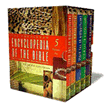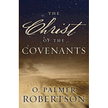- In the beginning, God created the heavens and the earth
- Adam and Eve
- Noah
- Abraham
- Isaac
- Jacob
- c.1800 B.C. The death of Joseph
- c.1445 B.C. The Exodus from Egypt
- c.1405 B.C. The death of Moses. The books of Genesis, Exodus, and Leviticus were written by Moses sometime between the Exodus and his death. Numbers and Deuteronomy were written during Moses's last days. Deuteronomy includes his farewell address, and an account of his death.
- c.1400 B.C. The conquest of the Promised Land. The book of Joshua contains eyewitness accounts, so it was written around this time.
- c.1380-1050 B.C. - The period of the Judges
| Israel and Judah |
| c.1050 - 1010 B.C. |
Saul |
| c.1010 - 970 B.C. |
David |
| c.970 - 931 B.C. |
Solomon |
| c.960 B.C. |
The construction of the temple in Jerusalem |
| c.931 B.C. |
Rehoboam becomes king. The northern tribes revolt and the kingdom is divided. From here on, the northern tribes are called Israel and the southern tribes are called Judah. Now Jeroboam is king of Israel, and Rehoboam is king of Judah. |
| Israel (northern kingdom) |
Judah (southern kingdom) |
| c.931 - 910 B.C. |
Jeroboam |
c.931 - 914 B.C.
c.914 - 912 B.C. |
Rehoboam
Abijah |
c.909 B.C.
c.909 - 886 B.C.
c.885 B.C.
c.885 B.C. |
Nadab
Baasah
Elah
Zimri |
c.911 - 871 B.C. |
Asa |
c.885 - 874 B.C.
c.873 - 853 B.C.
c.853 - 852 B.C. |
Omri
Ahab
Ahaziah |
c.871 - 848 B.C. |
Jehoshaphat |
| c.850 B.C. - The death of Elijah, prophet in Israel |
| c.852 - 841 B.C. |
Jehoram |
c.848 - 841 B.C. |
Jehoram |
| c.842 - 813 B.C. |
Jehu |
c.841 B.C.
c.840 - 835 B.C. |
Ahaziah
Athaliah (queen) |
| c.813 - 797 B.C. |
Jehoahaz |
c.835 - 796 B.C. |
Joash |
| c.797 - 782 B.C. |
Jehoash |
c.796 - 767 B.C. |
Amaziah |
c.793-740 B.C. - The ministry of Amos in both kingdoms
c.793-753 B.C. - Jonah lived during Jeroboam II's reign, and ministered to Ninevah, the capital of Assyria
|
c.793 - 753 B.C.
c.753 B.C.
c.753 B.C. |
Jeroboam II
Zechariah
Shallum |
c.767 - 739 B.C. |
Uzziah |
c.750-700 B.C. - The ministry of Micah
c.740-700 B.C. - The ministry of Isaiah in Judah |
c.747 - 742 B.C.
c.742 - 740 B.C. |
Menahem
Pekahiah |
c.739 - 734 B.C. |
Jotham |
c.740 - 731 B.C.
c.731 - 722 B.C. |
Pekah
Hoshea
|
c.734 - 728 B.C.
c.728 - 699 B.C. |
Ahaz
Hezekiah |
c.722 B.C. - The ministry of Hosea in Israel
c.722 B.C. - The nation of Israel is destroyed by Assyria |
|
- c.699 - 643 B.C. - Manasseh
- c.650 B.C. - Nahum preaches to Ninevah. They do not repent.
- c.642 - 640 B.C. - Amon
- c.640-615 B.C. - Habakkuk is written
- c.640 - 609 B.C. - The reforms of King Josiah. Zephaniah is written during this period.
- 627-586 B.C. - The ministry of Jeremiah
- 612 B.C. - Ninevah, the capital of Assyria, falls to Babylon.
- c.609 B.C. - Jehoahaz
- c.609 - 598 B.C. - Jehoiakim
- 605 B.C. - The Babylonian conquest of Judah begins. Daniel is exiled, and serves in the Babylonian king's court.
- 597 B.C. - Ezekial is exiled to Babylon and begins his prophetic ministry, which lasts at least 23 years
- c.597 B.C. - Jehoiachin
- c.597 - 587 B.C. - Zedekiah
- 586 B.C. - The fall of Jerusalem and the beginning of the Babylonian captivity. The event is commemorated in Lamentations. Obadiah writes his prophesy against the Edomites, who had helped Babylon against the Israelites.
- 539 B.C. - Babylon defeated by Persia. Daniel given a position in Persia's court.
- 538 B.C. - The people of Judah begin their return from exile in Babylon. Soon thereafter, 1 and 2 Chronicles is written, covering the history of Judah for the previous 500 years.
- 515 B.C. - The temple is rebuilt, at the urging of Haggai and Zechariah. Malachi writes shortly thereafter.
- 480 B.C. - Esther, a Jewish exile in Persia, becomes queen of the Persian Empire
- 458 B.C. - Another group of exiles returns, led by Ezra
- 445 B.C. - The last group of exiles returns with Nehemiah, and they rebuild the wall of Jerusalem
Dates are taken from the book introductions in the English Standard Version Classic Reference Bible. I also used this chronology for dates of kings. Where there was a conflict with the ESV, I went with the ESV. This causes some gaps. There are several competing chronologies for the kings, but the farthest they are ever off from each other is about 10 years. I'm attempting to provide an overall view and a feeling for the order of events, so this is fine for my purposes. The dates marked with a "c." are approximate. The ones without that mark are more certain.
Buy these books from Christian Book Distributors
 The Zondervan Encyclopedia of the Bible, 5 Volumes: Revised
The Zondervan Encyclopedia of the Bible, 5 Volumes: Revised
Edited by Moises Silva & Merrill C. Tenney / Zondervan
One of the most reliable Bible encyclopedias has been thoroughly revised! Backed by current archaeological research, this comprehensive edition features over 7,500 quality articles from more than 230 international scholars; plus hundreds of color and black-and-white illustrations, charts, graphs, and maps. Diverse scholarly viewpoints provide well-rounded perspectives of theological and biblical topics. Approx. 5000 pages total, five hardcovers.
 The Christ of the Covenants
The Christ of the Covenants
By O. Palmer Robertson / P & R Publishing
A definitive contribution to covenant theology from a Reformed perspective. Emphasizing the interdependence of the Old and New Testaments, Robertson examines the covenants of creation, Adam, Noah, Abraham, Moses, David, and Christ to illustrate the progressive nature of God's redemptive plan. Readers will benefit from Robertson's balanced exposition and fair-minded interaction with other viewpoints. 308 pages, softcover from P & R.
 The New International Commentary on the Old Testament, 23 Volumes
The New International Commentary on the Old Testament, 23 Volumes
Edited by Robert L. Hubbard, Jr. / Wm. B. Eerdmans Publishing Co.
Please Note: Since this series is not complete, the price for the entire series does not include projected volumes or books listed as "not yet in print."
"In the Old Testament we read God's word as it was spoken to his people Israel. Today, thousands of years later, we hear in these thirty-nine books his inspired and authoritative message for us." These twin convictions, shared by all of the contributors to The New International Commentary on the Old Testament, define the goal of this ambitious series of commentaries. For those many modern readers who find the Old Testament to be strange and foreign soil, the NICOT series serves as an authoritative guide bridging the cultural gap between today's world and the world of ancient Israel. Each NICOT volume aims to help us hear God's word as clearly as possible.
The contributors apply their proven scholarly expertise and wide experience as teachers to illumine understanding of the Old Testament and present the results of the best recent research in an interesting manner.
Each commentary opens with an introduction to the biblical book, looking especially at questions concerning its background, authorship, date, purpose, structure, and theology. A select bibliography also points readers to resources for their own study. The author's own translation from the original Hebrew forms the basis of the commentary proper. Verse-by-verse comments nicely balance in-depth discussions of technical matters---textual criticism, critical problems, and so on---with exposition of the biblical writer's theology and its implications for the life of faith today. A scholarly series.
